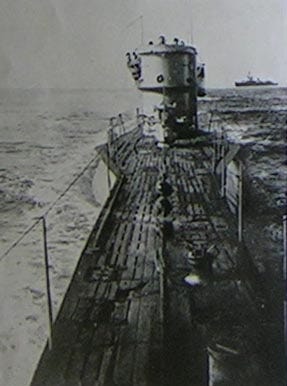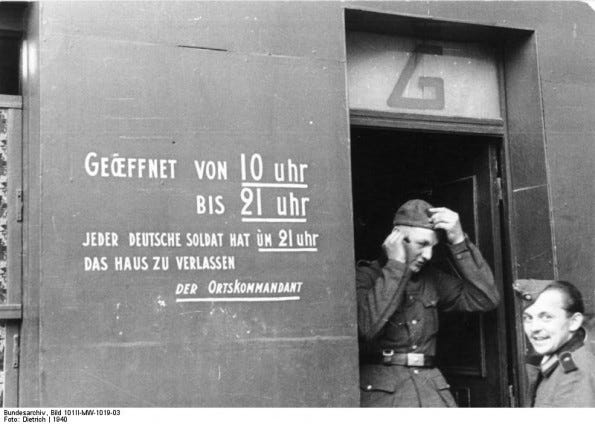Royal Navy interrogate 'fervent Nazis'
29th June 1941: U-651 sinks her second and last ship, her crew survive
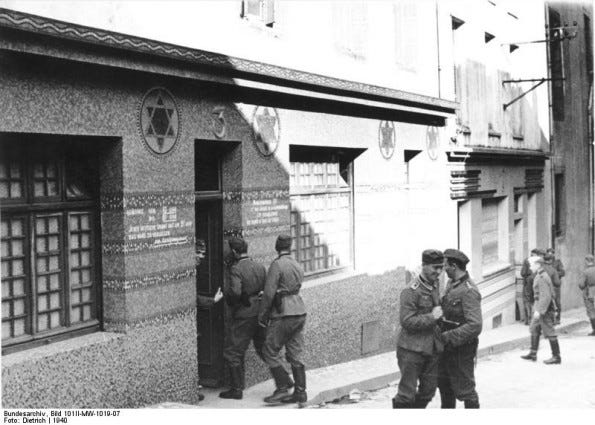
On the 24th U Boat U-651 had sunk the Brockley Hill, a British steam merchant ship crossing the Atlantic in an escorted convoy. All 42 crew members survived. Five days later, in the early hours of 29th June, the U-651 got inside the same convoy and torpedoed the merchant vessel ' SS Grayburn'.
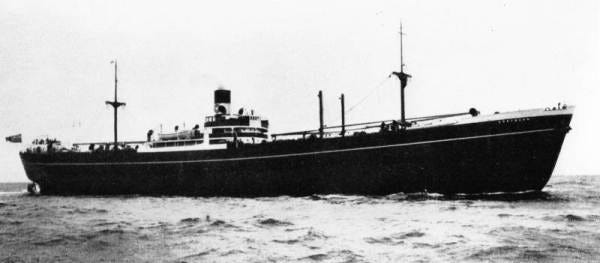
U-651 was on her first operational mission and this may account for why minutes later she was in collision with one of the other merchant vessels in the convoy. The convoy escort warships were on to her almost immediately and she was subjected to a pattern of depth charging, although she went deep, she sustained further damage from these.
She was forced to the surface at about 0730 and when she started up her diesels, causing a certain amount of black smoke, she was spotted and subjected to shell fire by the escorts. The crew abandoned the U-boat and all were captured.
As usual Royal Navy Intelligence took care to interview all the prisoners, learning as much as they could about everything related to U Boat operations, from technical developments to the conditions in their home ports. They also gathered information about the morale and attitude of the crew. U-651 were considered to be particularly 'fervent Nazi's':
The First Lieutenant, Oberleutnant zur See (Lieutenant) Karl Josef Heinrich, was an extremely unpleasant person, uncouth and ill-informed, and made every effort to be a general nuisance; both he and the Engineer Officer (Engineer Lieutenant) Benno Brandt1, believed that they were furthering the cause of Hitler's New Order by making innumerable minor complaints and by attempting to bully sentries and others who were unfortunate enough to have to come into contact with them.
These officers were not of the officer class, and only slightly educated. They felt insulted when asked their religion, Heinrich stating the he had no time for "all that tomfoolery," but adding later he was vaguely a "God-believer" (Gottgläubig).
Brandt professed to be a German-believer" (Deutschegläubig), which he thought a still more advanced state of mind, immeasurably superior to the possession of a faith in God, who after all, had started life as the "Jewish Jehovah." This officer was considered by everyone who came in contact with him to be the worst specimen of a prisoner encountered in this war.
"U 651" carried three Midshipmen whose suitability for U-Boats was being tested; they were Fähnrich zur See (Midshipmen) Gustav Adolf Schütze, Georg Stürenberg and Wilhelm Schneider.
They were scarcely of the Officer class; had been educated in the Nazi creed from the age of about twelve or thirteen and were consequently almost illiterate, and lacking any personality whatsoever; they had no knowledge of history, and not even a smattering of English or French; they gave the impression of only having learnt a little reading and less writing.
Their conversation consisted of propaganda quotations which they did not fully understand, and which they frequently introduced in the wrong place. They had apparently had very little home-life or parental influence, and later, only inadequate naval training; they did not even know how to stand to attention, nor how to address a superior officer.
The deterioration since the beginning of the war in the type of U-Boat officer was more marked in the case of "U 651" than in any batch of naval prisoners recently examined.
Several prisoners stated that they had fraternised with the local inhabitants and had formed friendships with the womenfolk whom they frequently took to the cinema. The Germans affected an attitude of pity towards the French, whom they described as "harmless and hungry."
“Several prisoners deplored the tendency, noted among U-Boat officers and men, of being too friendly and indiscrete towards the French in the local cafes and brothels.”
Nevertheless, some Officer and Chief Petty Officer prisoners suspected a hidden subtle and organised opposition on the part of the French, which they feared as likely to become dangerous. It was noted by the Germans that in spite of the polite and obliging attitude of the French officials and workmen, something important always went wrong with the German arrangements in which any reliance had been placed on French co-operation.
Several prisoners deplored the tendency, noted among U-Boat officers and men, of being too friendly and indiscrete towards the French in the local cafes and brothels. The leakage of information was said to have become notorious, and it was alleged that the prostitutes of Lorient knew more about past and present plans than many German officers.
The sinking of U 138 (18th June) and her failure to carry out her special task were attributed by some prisoners to this serious leakage.
The full report Interrogation Report used to be available at U Boat Archive2 .
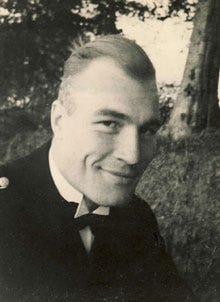
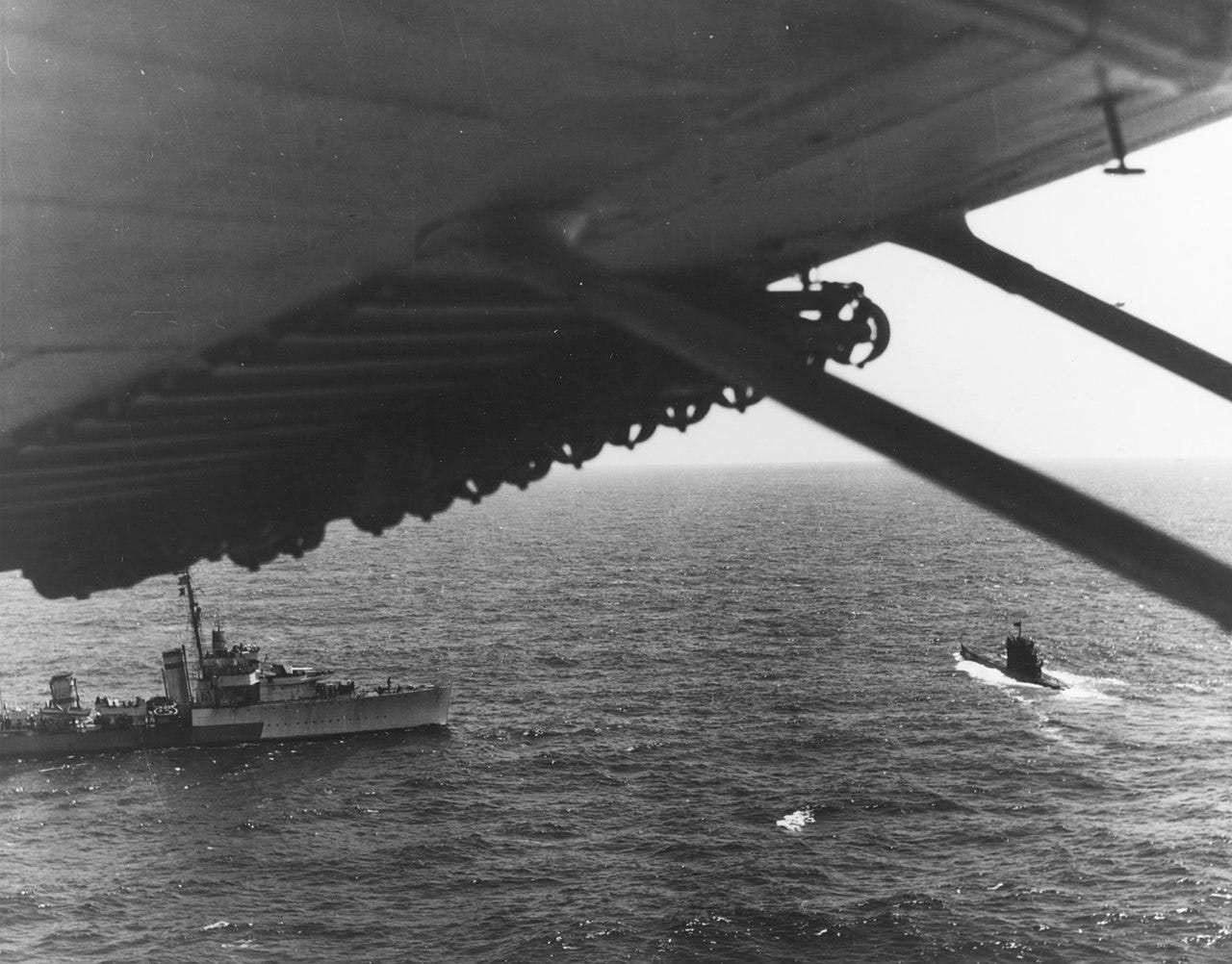
NB:
Paid Subscriptions are being introduced from 1st July, currently there is a 20% introductory discount.
To be sure of getting a new story every day, receiving each and every World War II Today post, please sign up.
Kriegsmarine.biz claims to have Brandt’s Jacket: http://kriegsmarine.biz/gallery.html?app=2&product=jacke-engineer-officer-benno-brandt-u651-52532
http://www.uboatarchive.net/U-651INT.htm It may be possible to access this from the Internet Archive - https://archive.org.


